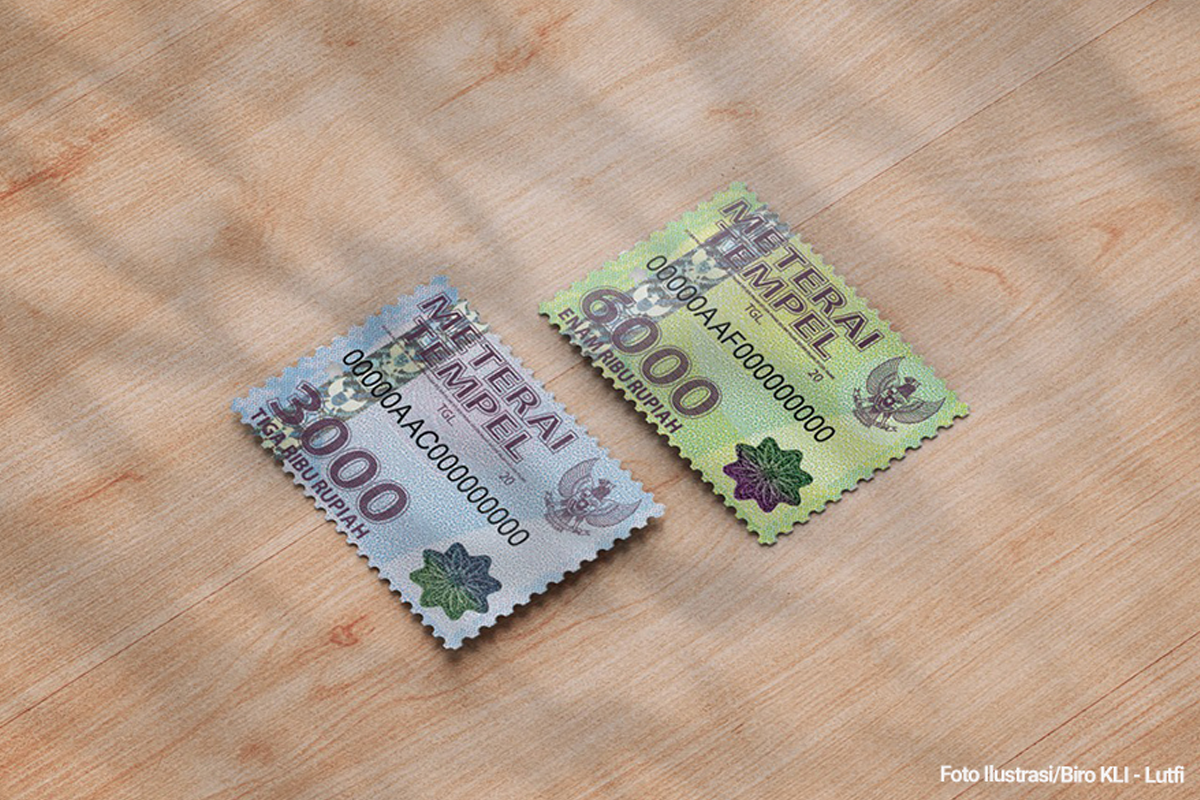Only Certain Taxpayers are Entitled to Collect Stamp Duty, Here are The Criteria
Friday, 05 November 2021

The government has stressed that only certain taxpayers are allowed to collect, pay and report payment of stamp duty or tax imposed on certain type of documents.
The taxpayer must meet the criteria set by the government in the Minister of Finance Regulation (PMK) Number 151/PMK.03/2021 which was issued and came into effect on 27 October 2021.
There are two criteria set forth in the regulation. First, taxpayers facilitate the issuance of securities such as checks and bilyet giro (demand deposit).
Second, taxpayers who issue or facilitate the issuance of documents evidencing transaction of securities including futures contracts, certificates, statement letters and other similar letters, as well as documents stating a nominal value of more than IDR 5 million, which amounts to more than 1,000 documents per month.
Read: New Stamp Duty Law Released, Here Are the Details
The mechanism for Determining Certain Taxpayer
Any taxpayer who meets the criteria will be designated as a stamp duty collector by an official appointed by the Director General of Taxes.
If there are taxpayers who meet the criteria but have not yet been determined, they can submit a notification via email, application or system provided by the DGT, to be designated as a stamp duty collector.
However, when the taxpayer no longer meets the criteria as a stamp duty collector for three consecutive months, the DGT will revoke the determination.
How to Collect Stamp Duty
Collecting stamp duty payable is done by affixing a printed or electronic seal (e-stamp) on the document.
Meanwhile, the collection mechanism is carried out depending on the type of document owed by the stamp duty.
For documents in the form of securities such as checks and bilyet giro, the collection is done when the documents are received from the stamp maker.
Then for documents in the form of futures contract securities, collection is carried out when the document is completed by the issuer or document issuance facilitator.
If the document is in the form of a certificate, statement letter, or the like and a document stating the nominal amount is above IDR 5 million, the collection is carried out when the document is submitted to the party owed the stamp duty.
Electronic Stamp Duty Collection
Meanwhile, for the collection of electronic stamp duty or e-stamps, the appointed taxpayer can request an e-stamp (e-meterai) from the distributor to then be affixed to the document.
As for what is meant by a distributor, is a business entity that has the qualifications to distribute or sell e-stamp through the application system.
Requests for e-stamp to distributors can be made by taxpayers as needed during one tax period. Before submitting an e-stamp request for the next tax period, the taxpayer must pay the stamp duty owed in the previous tax period.
Read: Rules on the Use of Electronic Stamp Duty Released
Stamp Duty Payment
Once collected, the stamp duty must be paid by the designated taxpayer no later than the 10th of the following month after the tax period ends.
Payment can be made using the Tax Payment Slip (SSP) form or other means of administrative equivalent to SSP.
In addition, it can also be done using a billing code with a tax account code 411611, with a payment code of 900 for the printing stamp and 901 use of the printing stamp because it cannot use the e-stamp.
As for the use of e-stamp, you can use the payment code 902, by including the Taxpayer Identification Number of the e-stamp distributor in the description column.
Reporting of Stamp Duty Collection
In addition to collecting and paying, taxpayers who are appointed as collectors must also report a periodic stamp duty return to the DGT.
For the collection of stamp duty, the periodic stamp duty return of the stamp duty is submitted directly to the DGT office on the 20th of the following month after the end of the tax period.
Meanwhile, for e-stamp collection, the periodic stamp duty return is submitted through an application or system provided by the DGT.
If there is an error in filling out the periodic stamp duty return, such as miswritten or miscalculation, the taxpayer can make corrections.
Meanwhile, if there is an excess of the stamp duty paid, the taxpayer can apply for a book transfer or refund of the tax overpayment or refund.
For the record, even though in one tax period no stamp duty is collected, the taxpayer is still required to make a periodic stamp duty return.


